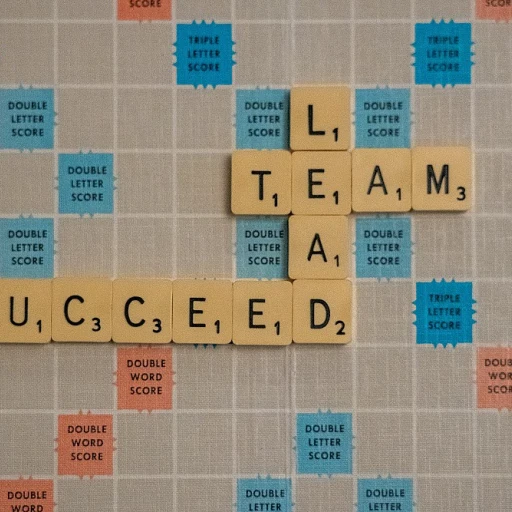
Understanding the Role of a Career Planner
Exploring the Importance of Career Planning
In the dynamic world of career development, understanding the role of a career planner is crucial. Whether you're part of the marine corps or navigating the corporate ladder, a career planner acts as a guiding force. They help individuals and organizations align their goals with actionable steps, ensuring that every move is strategic and purposeful.
Career planners are specialists in identifying opportunities and challenges within various fields. For instance, in the marine division, they work closely with units like the marine aircraft wing and support battalion to ensure personnel are positioned for success. This involves not just filling immediate job vacancies but also planning for long-term career growth.
For those in the marine corps, career planners play a pivotal role in retention and education. They help marines transition between roles, whether moving from a squadron marine position to a headquarters company or exploring new opportunities within the marine wing. Their expertise is invaluable in navigating career transitions, ensuring that skills and competencies are matched with the right roles.
Moreover, career planners are adept at leveraging networking opportunities. They connect individuals with the right groups and battalions, facilitating career advancement and personal growth. This is particularly important in specialized fields like marine aircraft maintenance, where connections can lead to new opportunities and advancements.
In essence, career planners are the backbone of career development, providing the support and guidance needed to navigate the complexities of modern career paths. For more insights on how career planning can unlock potential, consider exploring this resource.
Setting Clear Career Goals
Establishing Your Career Vision
Setting clear career goals is an essential step in your career planning journey. Whether you're part of the marine forces reserve, serving in a support battalion, or aspiring for a role in the marine division, defining what success looks like for you is vital. Without clarity, it becomes challenging to navigate transitions or evaluate your progress effectively.
Start by envisioning where you want to be in the future. This applies whether you're in the marine aircraft wing seeking to rise within a squadron marine unit, or aiming for a pivotal position within a marine wing support group. Consider what you want to achieve in the short term and the long run. This vision will guide your decisions and ensure you remain focus-driven.
- Clarify Your Aspirations: Ask yourself questions about what excites you in your current role or what you want to achieve. If working with a career planner in a corps video or exploring the marine corps' educational programs sparks interest, include these as part of your goals.
- Define Milestones: Identify key development stages. If you're part of the united states marines, think about completing necessary training, such as those offered in educational contexts like school video learning, to reach your goals.
- Align with Organizational Goals: Ensure your personal career objectives complement your organization's mission, whether in a marine aircraft group or a headquarters company.
There's no "one-size-fits-all" in setting career goals. It's crucial to be flexible and adaptable, particularly when part of dynamic environments like the marine corps or a support battalion. A well-articulated career path will not only provide direction but also enhance your chances of retention and progression.
For those aiming to enhance their career prospects, aligning your career aspirations with opportunities for personal and professional growth can be beneficial. Whether you're entering the job market or transitioning within the marine corps, having a clear set of goals places you in a stronger position to negotiate success.
Identifying Skills and Competencies
Skills and Competencies in Demand
In the journey of career planning, identifying your skills and competencies is an essential step. This becomes particularly crucial when you're considering transitioning into specialized fields, such as within the United States Marine Corps or the broader military landscape. For instance, if you're exploring roles in the marine division, being aware of skills related to marine aircraft operations, support battalion activities, or even marine wing deployments can be essential. Moreover, career planners across various sectors, including those supporting military careers, frequently highlight the importance of technical skills alongside soft skills. Whether you're part of a marine aircraft group or a corporate squadron, skills such as leadership, strategic planning, and effective communication play significant roles. Here are some actionable steps to help you identify and refine your skills:- Assess Current Skills: Regularly evaluate your existing skill set. Resources such as mastering coaching skills can provide insights into honing your abilities.
- Seek Feedback from Peers: Engaging with colleagues or mentors can offer a broader perspective on your competencies. This is particularly useful in specialized fields like marine corps planning or support roles within a battalion.
- Engage in Continuous Learning: The value of education and ongoing training cannot be overstated. Consider joining professional groups or taking courses related to your field of interest, whether it's air support operations or educational advancements in a marine service environment.
Navigating Career Transitions
Successfully Transitioning Through Change
Navigating career transitions can often feel like steering a large marine aircraft in turbulent skies. A career planner plays an essential role during these times by acting as a compass, guiding you through uncertain waters. Understanding your own needs and aligning them with the opportunities available within your battalion or squadron can ensure smoother transitions. When considering a career shift, it is crucial to introspect and identify where your skills and competencies lie. Transitioning might require leveraging the training and experiences you've amassed over time, whether through classroom education or hands-on service in a support battalion or marine division. Additionally, embracing opportunities such as further education or specialized training can fill any gaps and prepare you for new roles. Another critical aspect of navigating transitions is engaging with specialists and planners, who are well-versed in the nuances of roles such as those in the United States Marine Corps. Their insights can spotlight career paths or MOS (Military Occupational Specialty) that you might not have considered. Utilizing resources like career planning videos or attending info sessions can provide valuable perspectives and practical advice. Networking is another vital element in this journey. Connecting with peers, alumni, or members of specialist groups within the marine corps or related sectors can offer not just support, but actionable insights through real-world experiences. These connections act as a support battalion, helping you stay informed and inspired. Finally, it's important to continually evaluate and adapt your plans in response to evolving circumstances. Just as a marine wing navigates changing winds, your career strategy should be flexible enough to turn challenges into opportunities, ensuring that your journey remains aligned with your ultimate career goals.Leveraging Networking Opportunities
Building Connections for Career Advancement
In the journey of career planning, leveraging networking opportunities is crucial. Networking is not just about exchanging business cards; it’s about building meaningful relationships that can support your career growth. Whether you're in the marine corps or any other field, connecting with the right people can open doors to new opportunities and insights.
For those in the marine division or marine aircraft wing, networking can mean engaging with fellow marines, specialists, and support battalion members. These connections can provide valuable insights into different roles, such as those in the marine wing or headquarters company. Understanding the dynamics within your group can help you identify potential career paths and mentors.
Consider attending events or joining groups related to your field. For instance, if you're part of a marine aircraft squadron, participating in squadron marine events can be beneficial. These gatherings are perfect for meeting people who can offer guidance and support as you navigate your career transitions.
Additionally, online platforms and forums can be a great way to connect with others in your field. Engaging in discussions or sharing your experiences can help you build a reputation and establish yourself as a knowledgeable professional. This is particularly important if you're looking to transition into a new role or fill a position within a different marine corps unit.
Remember, networking is a two-way street. While it's important to seek support and advice, offering your own insights and assistance can strengthen your professional relationships. Whether you're in the forces reserve or part of a marine support battalion, being a reliable and helpful contact can enhance your career prospects.
Ultimately, effective networking can significantly impact your career planning efforts. By building a strong network, you can gain access to new opportunities, receive valuable advice, and stay informed about developments within your field. This proactive approach can help you achieve your career goals and ensure long-term success.
Evaluating Progress and Adjusting Plans
Monitoring Progress and Making Adjustments
As you journey through your career, it's vital to continuously evaluate your progress and adjust your plans accordingly. This ongoing process is crucial for staying on track and achieving long-term success.
Career planners serve as great allies in helping you assess your milestones, providing guidance on adjustments to align with your revised goals. Whether you are navigating through the dynamic environment of the marine corps, aiming for the next rank within the forces reserve, or transitioning to a specialized role in marine aircraft support, regular evaluations are essential.
Consider the following strategies to effectively monitor and adjust your career plans:
- Set Regular Check-ins: Schedule periodic reviews with your career planner or mentor. Utilize these sessions to discuss progress, obstacles, and potential paths forward, ensuring your goals remain realistic and attainable.
- Feedback Loop: Gather feedback from peers, mentors, and support groups. This could be within your squadron or marine division. Constructive criticism and different perspectives often provide valuable insights for personal growth.
- Stay Informed: Keeping updated on your field's trends and demands is crucial. For marines, understanding shifts in the corps' structure or the introduction of new roles, such as those in the MOS spotlight, can open up new opportunities.
- Adaptive Learning: Be open to further education or specialized training, like those provided by marines' support battalions or headquarters companies. Align your skills with the evolving needs of your desired roles.
Ultimately, a career within the marine corps or any other service requires resilience and flexibility. Career planners and the structured support from your marine unit ensure you're not just following a path but actively crafting a rewarding and strategic journey.













